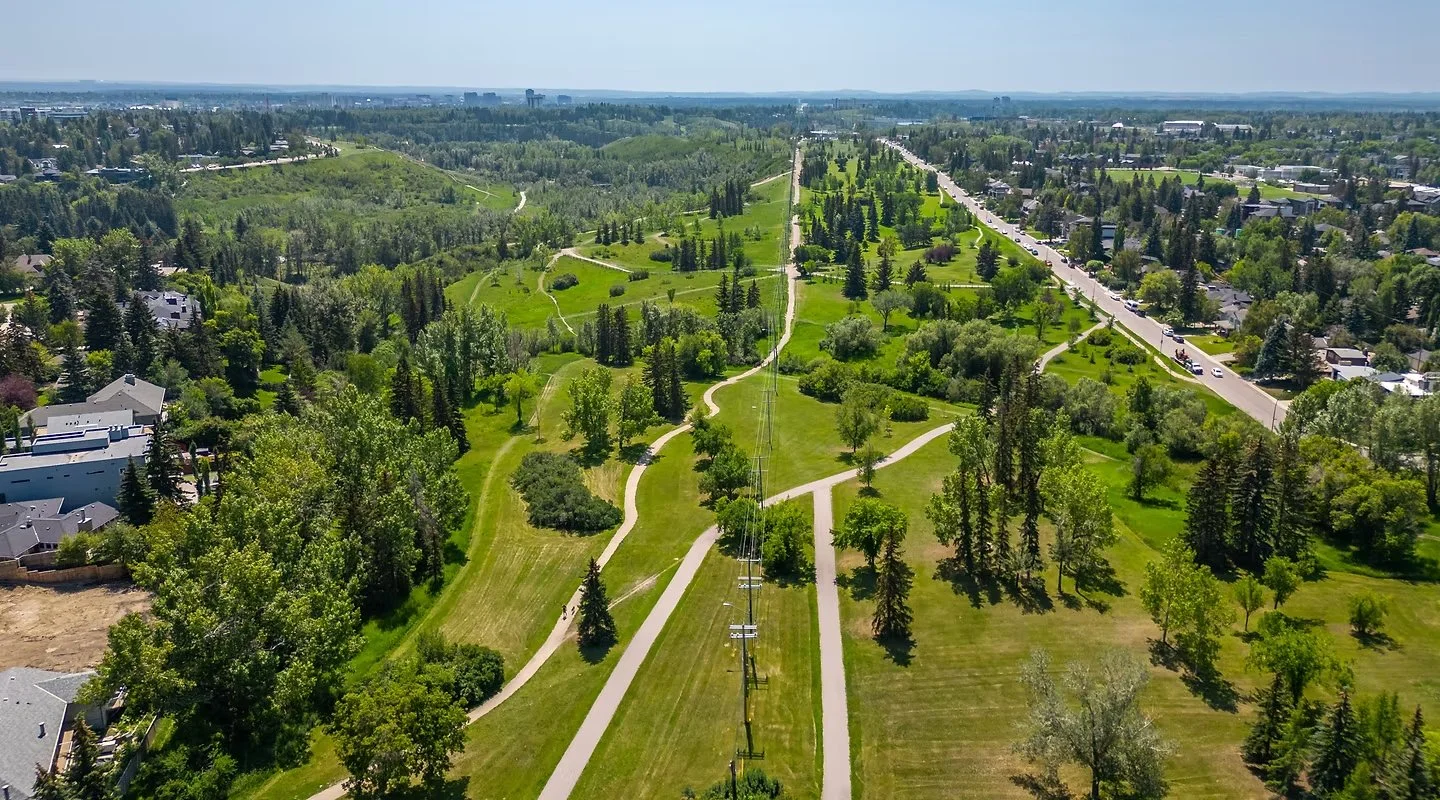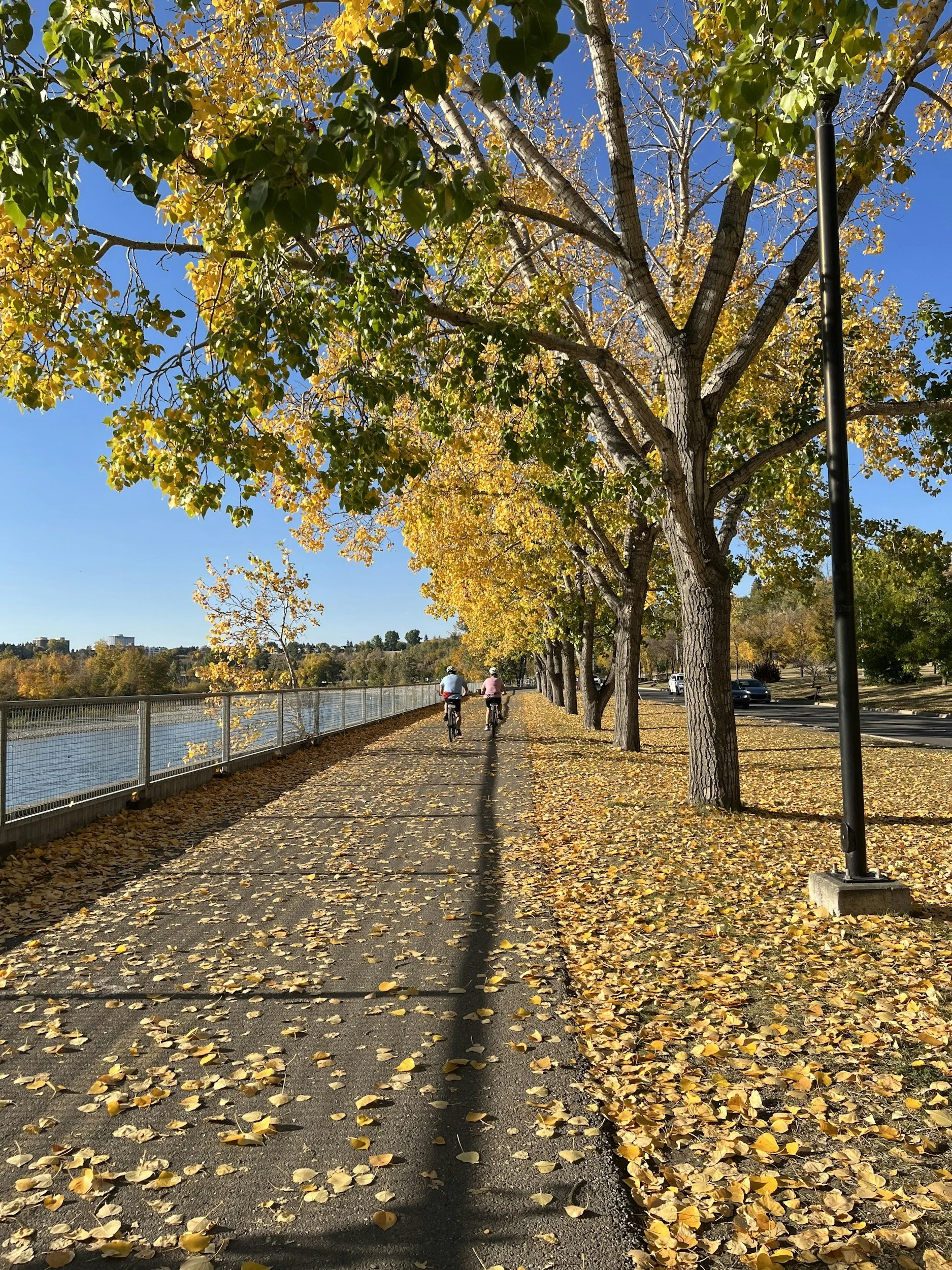Your Neighbourhood, Your Say, Our Calgary
Find out how you can participate in our City’s planning policies that shape the future by staying up-to-date on blanket upzoning (plus associated legal challenges), Restrictive Covenants, the use of Direct Control zoning, and the upcoming municipal election.
Blanket Upzoning Repeal Process Begins, but CFTG Warns Language in Motion May Undermine Community Protections
(Calgary, AB) Calgarians For Thoughtful Growth (“CFTG”) have reviewed both the initial draft of the notice of motion that was submitted to Calgary City Council's Executive Committee and the amended notice of motion that was ultimately approved (the “NOM”) by a vote of 13 to 2. We understand that Council will debate the NOM at its meeting on December 15, 2025 and, if approved, it will be directed to City administration to prepare the necessary amending bylaw to be considered in another public meeting in March 2026.
While we view the initiation of the repeal process as good news, there are specific problems with the language of the NOM which may make further harm to established communities. Certian of the draft language in effect is an invitation to developers to stuff the application box with further rowhouse, townhouse and similar multiplex applications prior to the outcome of the March public Council meeting. As such the NOM provides for a form of "grandfathering" for applications under the blanket rezoning R-CG for all permits then in the queue. We note that mayoral candidates Jeromy Farkas, Sonya Sharp and Jeff Davison all campaigned on repealing blanket upzoning, receiving collectively 228,984 votes of a total of 348,865 votes cast - 66% Calgarians have clearly spoken!
The specific problems arising from the NOM are:
(1) The language of paragraph (b) in effect provides an exemption to applications under the blanket upzoning R-CG designation for any parcels that "are included in an application or permit or permit (DP, subdivision, building permit) submitted before the first reading of the amending bylaw”. This allows developers to "include" parcels to ensure R-CG zoning. By the act of inclusion, developers get grandfathering of R-CG and this encourages a flood of applications prior to that first reading which will be after March 2026. This is not good planning and not good transitional management. Proper planning given the support from Calgarians for repeal would be to pause applications pending the outcome of the expected March 2026 public Council meeting.
(2) Paragraph (c) exempts parcels with approved land use redesignation "by Bylaw". While we anticipate that there will not be many residential land use amendments that will qualify for this exception, we found this language confusing because land use redesignations are to be approved by Council and it suggests that Council will continue to make land use redesignation approvals until the repeal bylaw is in place. CFTG are advocating that Council should self-impose its own political moratorium on land use redesignation approvals in all areas that were previously R-C1 and R-C2 until the repeal bylaw is in place.
(3) The proposed public hearing on the repeal bylaw was scheduled for February 17, 2026, but Council have moved it to sometime in March 2026. It is CFTG's view that the February date is still achievable given how well known this issue is within the community and given the short timeline for notifications under the City's public notice bylaw (30M22). This matter needs to be addressed by Council sooner given the developer exemptions and the redesignation concerns highlighted above.
Two councillors voted against the NOM, Nathaniel Schmidt in Ward 8 and Myke Atkinson in Ward 7 and have made public statements which need to be addressed.
Councillor Schmidt has stated that he voted against the NOM because he has a duty to protect the city from "legal jeopardy". His concerns are without merit. CFTG is continuing its appeal of the 2024 blanket upzoning bylaw so the any potential City legal exposure already exists. Should that appeal be successful the City may be exposed for every single permit it has approved under the blanket upzoning bylaw. Allowing the "developer exemption" language in the NOM, in light of the ongoing appeal, continues the ever-mounting increase in the potential exposure. Further pausing or deferring applications pending the repeal of the blanket rezoning bylaw may actually reduce the City's potential legal exposure, rather than increase it. Finally, the public hearing nature of rezoning mitigates any legal claim from such rezonings (subject to procedural fairness and other similar challenges).
Ward 7 Councillor Myke Atkinson was on CBC on November 18th and was making many of the arguments in favour of blanket upzoning which were presented at the public hearing in April and May of 2024. The views of Calgarians submitting written and in person presentations to Council at the 2024 public hearing, coupled with the results of the recent municipal election, confirm that Calgarians are overwhelmingly against blanket upzoning. Councillor Atkinson's published election platform was focused on pushing densification elsewhere in the city other than in his Ward 7. It seems clear that he is not listening to all Calgarians, and it is noteworthy that in his ward he was elected with only 37% of the votes cast.
CFTG asks that all members of Council, as this re-consideration of blanket re-zoning moves to an expected second public hearing, keep an open mind on the concept of returning to the previous low density land use districts. This is a fundamental legal requirement for any such planning matter.
Calgarians for Thoughtful Growth, is the grassroots coalition formed in response to the City of Calgary’s May 2024 blanket upzoning bylaw (the “Bylaw”). Our group began as the principal applicants in the legal challenge to the upzoning Bylaw and quickly grew to include over 600 individuals including named applicants, many others who wished to become named applicants and hundreds more financial contributors from across the city.
We sought a court review of the Bylaw because we believe it exceeds the City’s legal authority, was adopted through a process lacking fairness and impartiality and disregarded the overwhelming majority of public input received during the hearing process. We are appealing the lower court decision because we and our counsel believe it was incorrect. Our coalition continues to grow and is supported by legal professionals, community leaders, and engaged residents committed to ensuring that growth in Calgary reflects democratic values and community input.
Our work goes beyond the appeal of the blanket rezoning bylaw. We are actively engaging in Calgary’s municipal discourse in several ways:
Voter Education in the 2025 Election:
We are circulating a detailed candidate questionnaire on land use and planning reform to all candidates in the upcoming municipal election. We will publish the responses so that Calgarians can make informed decisions based on candidates’ positions on blanket upzoning, community consultation, and procedural fairness.
Defending Property Rights Against Misuse of DC Zoning:
We are raising public awareness of the City’s recent use of Direct Control (DC) zoning to manufacture a conflict between zoning and private restrictive covenants. The City uses this practice to challenge and remove covenants— without adequate public consultation, legal transparency, or clear articulation of the public interest. These moves appear designed to bypass safeguards and should concern all Calgarians who value private contractual interests, property rights and neighbourhood planning stability.
Through all of our efforts, we aim to uphold the principle that city-building must be inclusive, lawful, and grounded in community trust. We are ordinary residents, working to ensure that planning decisions reflect public values, not just ideological or political agendas. Under the banner of Calgarians for Thoughtful Growth, we are working to ensure housing is built with communities, not in spite of them.
About Us
Vision and Principles
For established neighbourhoods, the MDP already requires the City to respect the existing character of low density residential areas; encourage only modest redevelopment; ensure infill development complements the established character of the area; ensure community engagement that identifies and addresses local character, community needs and appropriate development transitions with existing neighbourhoods; reinforce the stability of Calgary’s neighbourhoods; make redevelopment more predictable for existing communities by lessening the impact on stable, low-density areas; and promote infilling that is sensitive, compatible and complementary to the existing physical patterns and character of neighbourhoods.
We agree with the above principles. But Calgary’s City Council and Civic Administration are, and have been for some years,ignoring them and we call on them to follow these guiding principles:
Proper Community Consultation - Give communities and their residents a guaranteed, meaningful say in how development occurs in their neighborhoods, ensuring growth respects local character and context. Community consultation doesn’t mean “no,” it means better. Inclusive planning leads to smarter development, healthier neighbourhoods, and fewer legal battles down the road.
MDP Compliance - Ensure that each development permit application meets the MDP requirements described above
No Clone 15 Minute Communities - Reject the “complete communities” concept, so as to preserve the unique character of each existing community
Realistic Parking - Require reasonable off-street parking as part of every redevelopment, to reflect actual vehicle ownership rates in Calgary
Contextual Sensitivity -Bring back contextual setback and height requirements
Smart, Targeted Density - Limit multiplex development to main streets, activity centres and major transportation nodes
Better Local Area Plans (“LAPs”) - Re-do the existing LAPs and require all new LAPs to have meaningful community engagement and to be reflective of community input
No Cheating - Restrict ability of the Civic Administration to grant relaxations as part of redevelopment
Continued Engagement - Require notice to community and all affected residents for each requested amendment to a development permit application
Respect Restrictive Covenants - Include review and compliance with restrictive covenants as part of the planning process
Don’t Abuse Direct Control - Prohibit use of Direct Control zoning to defeat restrictive covenants or to permit development not otherwise aligned with the LAP, Area Structure Plan or other governing community-level statutory planning policy







